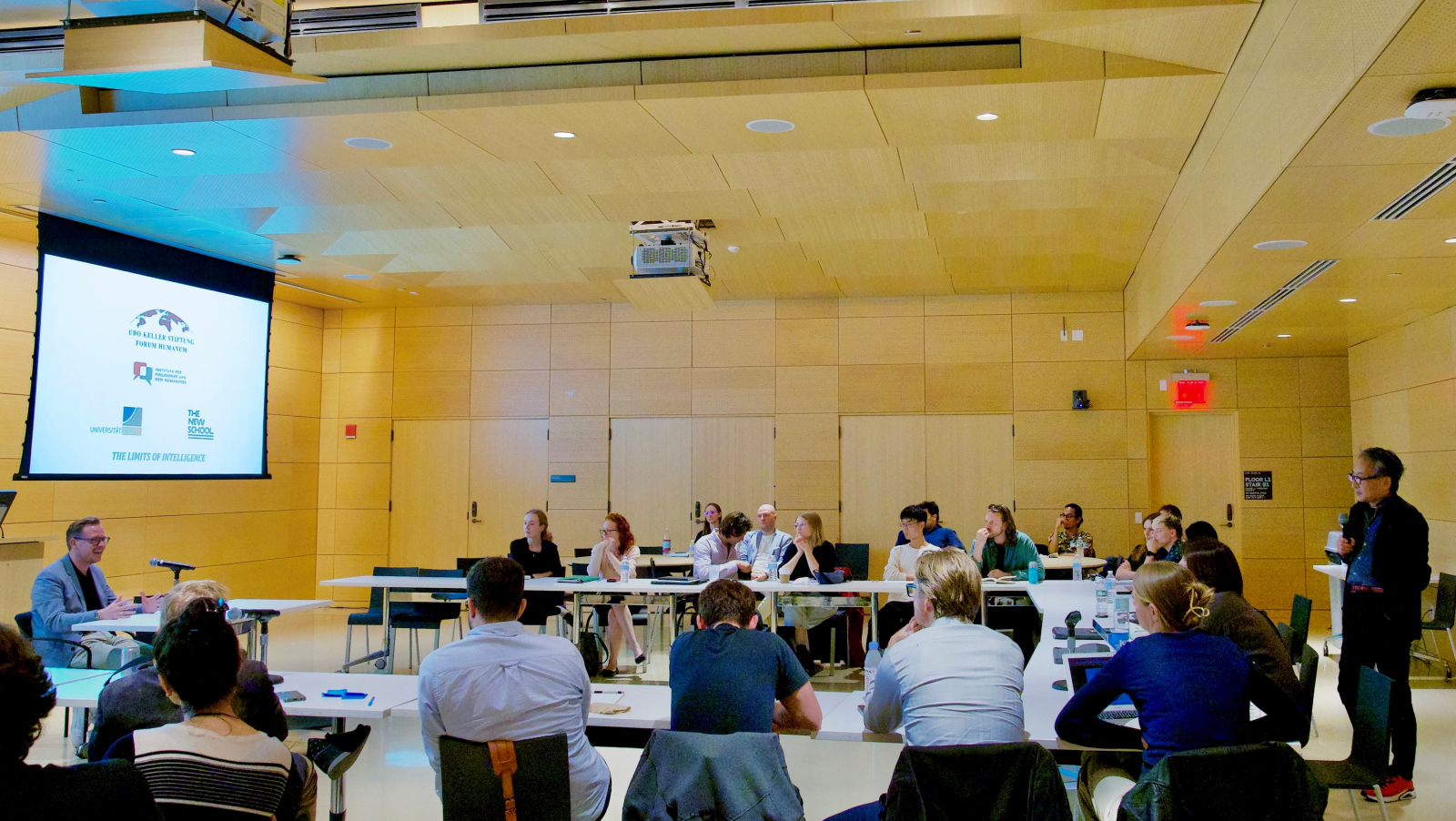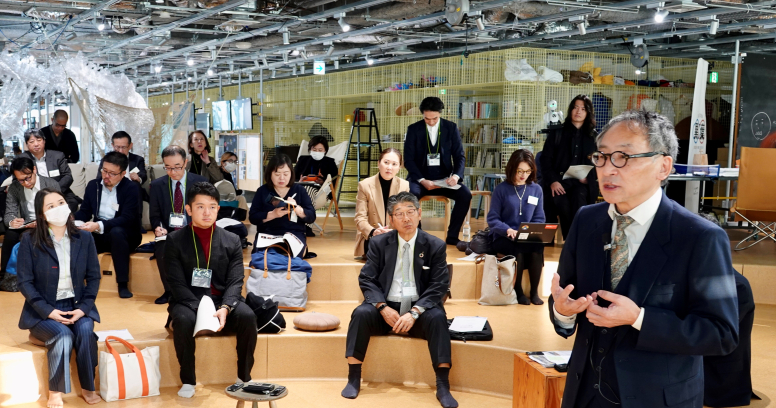KIP scholars, students discuss ‘limits of intelligence’ in AI era at N.Y. workshop

Prof. Yasuo Deguchi of Kyoto University and Prof. Markus Gabriel of the University of Bonn took part in the Institute for Philosophy and the New Humanities Fall Workshop in New York. Three graduate students from Kyoto University, led by KIP Research Fellow, joined the roughly 20 participants at the workshop.
Details
Prof. Yasuo Deguchi of Kyoto University, Co-Chairperson of the Kyoto Institute of Philosophy (KIP), and Prof. Markus Gabriel of the University of Bonn, Senior Global Advisor of KIP, took part in the Institute for Philosophy and the New Humanities Fall Workshop in New York, U.S. Established in 2020 within The New School for Social Research—with support from the Udo Keller Foundation in Germany—the Institute each year invites distinguished scholars to lead an intensive five-day workshop for graduate students, aiming to tackle pressing questions in contemporary philosophy and the humanities.
This year’s workshop, held from September 30 to October 4, centered on re-examining the “limits of intelligence” amid the rapid rise of artificial intelligence (AI). Prof. Gabriel served as the moderator, while Prof. Deguchi delivered the concluding Forum Humanum lecture on the final day, drawing on East Asian philosophical traditions and his own concept of “WE-turns” to reflect on how best to envision the ideal relationship between humans and AI. Alongside students from The New School and the University of Bonn, three graduate students from Kyoto University, led by KIP Research Fellow Maiko Tsuji, joined the roughly 20 participants at the workshop.
On the second day, Prof. Gabriel and bestselling German author Daniel Kehlmann offered a panel discussion on how intellectual acts—such as understanding and translation—intersect with AI. They opened by playing a podcast “interview” with Kehlmann, only to reveal afterward that it was entirely generated by AI. This provocation sparked a key question: “Does AI truly understand meaning, or is it just imitating human conversation?” After pointing out that many people generally think that AI is just about pattern recognition, Prof. Gabriel invoked the idea of 20th-century philosophers Willard Van Orman Quine and Donald Davidson that suggests “Understanding language is essentially a form of translation.” If that is the case, he proposed, then human thinking and everyday conversation may not be so distinct from what AI does. This contention ignited a lively debate among the participants.
After the workshop concluded, the three Kyoto University students shared their thoughts:
Participant 1:
“I realized that the central philosophical question—how we come to know the uniqueness of human being endowed with “subjectivity” and the “value” that guides our actions—is resurfacing due to the advent of AI, which dwells in the liminal space between subjectivity and objectivity.”
Participant 2:
“Science has sometimes failed to treat minority groups ethically, leading to mistrust. Such ‘epistemic injustice’ could be similarly observed with AI. In fact, we’re already seeing situations where AI exhibits biased judgments, such as in résumé screening or social media account suspensions. In today’s world, these scenarios risk create inequalities in opportunities for acquiring knowledge.”
Participant 3:
“Throughout the workshop, the primary focus was constantly on, ‘What’s the difference between humans and AI?’ From an Eastern perspective, however, perhaps the more crucial question is, ‘How should we relate to AI?’ The values often emphasized in Japan—harmony, relationships, and even silence—may offer critical new viewpoints on how humanity can engage meaningfully with modern technology.”
In essence, this year’s workshop at the Institute for Philosophy and the New Humanities provided a valuable opportunity not only to examine the boundaries of intelligence in the face of AI’s rapid rise, but also to reconsider the nature of understanding, the ethics of technology, and the philosophical dimensions of human-AI relationships.
Others



